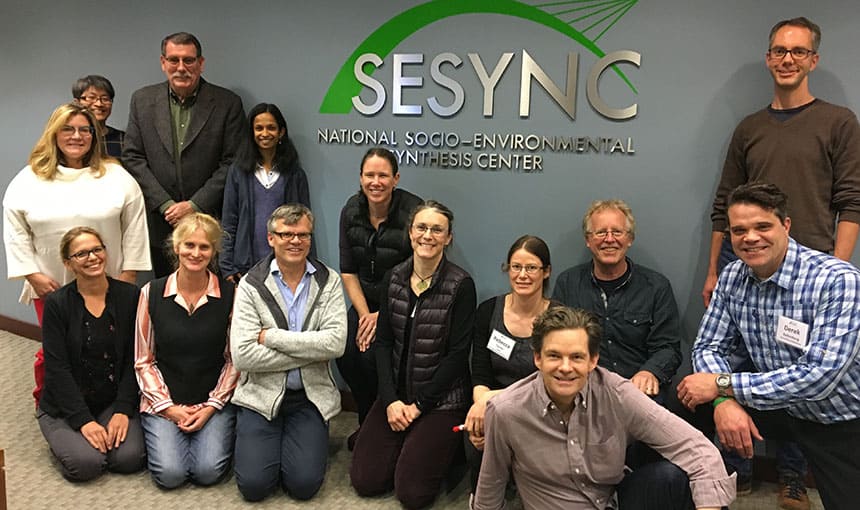Late last year the Scion Post-Doctoral Fellow was part of the first working group meeting hosted by the National Socio-Environmental Synthesis Center (SESYNC) in the US. It brought together 14 researchers from New Zealand, Australia, Japan, Canada, the US, Germany and Switzerland.
Rebecca says the scientists pooled their knowledge on insect interceptions and establishments to create a database that is far more informative than records from any individual country.
This working group aligns with Rebecca’s BioHeritage project that aims to develop an establishment risk model to generate early warning alerts for pests that might enter New Zealand. It ties to BioHeritage’s goal of creating a world-class biosecurity system.
“Interceptions are records of pests that are detected on cargo, or with passengers, at a country’s border and are hence prevented from entering. Consequently, interceptions also provide us with information on insects that are moving around in global trade.
“The pattern of global establishments also indicates the movement of insects, as well as which insects are better than others at invading.”
She says this information can be used to inform the public about which species are most likely to invade Aotearoa.
“A good example of this system working well are the awareness campaigns MPI has run around the brown marmorated stink bug – which is already a major pest in the US and parts of Europe.”
Thanks to the awareness campaign, a member of the public knew exactly what to do when they found stink bugs in a box of imported shoes – containing the pests and contacting MPI straight away.
The next SESYNC meeting is scheduled for mid-2019, and Rebecca says this will provide an opportunity for feedback and further development of the establishment-risk model.
